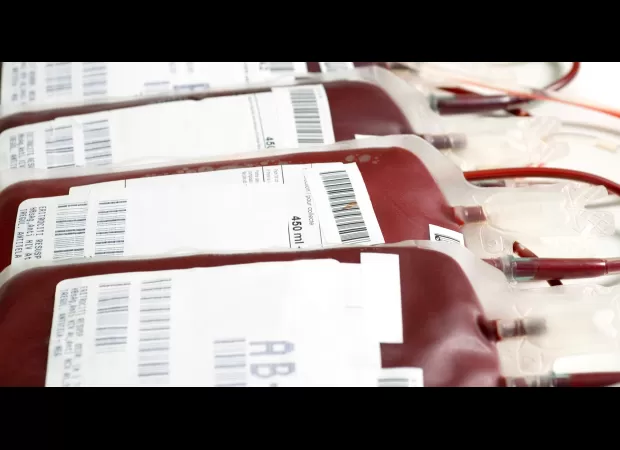Thousands may be at risk of a potentially deadly infection, prompting a health alert.
Thousands of Brits may have undiagnosed hepatitis C after receiving unscreened blood transfusions.

According to recent reports, a staggering number of people may have been infected with hepatitis C due to receiving unscreened blood transfusions. It is estimated that as many as 30,000 individuals may have contracted the virus during the infected blood scandal that occurred between 1970 and 1991.
This means that there could be thousands of people in the UK who are unknowingly living with the 'silent killer' that is hepatitis C. Shockingly, around 2,000 of these individuals may have absolutely no idea that they are infected and at risk of developing cancer.
The Infected Blood Inquiry has brought to light the alarming fact that as many as 30,000 patients were given tainted blood contaminated with either HIV or hepatitis. This was due to the lack of screening procedures before the blood was transfused. Hepatitis C, in particular, is known for its lack of early symptoms, making it difficult to detect and treat. However, the longer a person has the virus, the higher their chances of developing deadly liver cirrhosis and related cancers.
As the scandal continues to be exposed, more and more people are coming forward to request home-testing kits. In just over a week, a staggering 12,800 people in England have requested these kits, compared to only 2,300 in the entire month of April. This is a clear indication of the severity of the issue and the urgent need for action.
It has been revealed that the UK was struggling to meet the demand for blood-clotting treatments, leading to the importation of supplies from the US. Unfortunately, these supplies included donations from drug users and prison inmates, which were not properly screened. It wasn't until 1991, a whole 18 months after the first virus was discovered in a laboratory, that blood donations began to be screened.
So, what exactly is hepatitis C? It is a blood-borne virus that can cause liver cancer and failure if left untreated. The scary part is that it often shows no symptoms until significant damage has been done to the liver. Some common symptoms include fatigue, difficulty concentrating, and a higher risk of other health issues such as cardiovascular disease, mental health problems, kidney disease, and musculoskeletal pain.
The infected blood scandal has had devastating consequences, with an estimated 3,000 people losing their lives as a result. To make matters worse, there have been accusations of a cover-up by government officials. Documents uncovered by campaigners revealed how medical experts likened haemophiliac patients to laboratory chimpanzees. These patients were injected with contaminated blood products without their consent, under the guise of treatment.
One such patient is Roger Newman, who was infected with hepatitis A and B at the young age of eight, due to receiving infected Factor VIII blood products without his knowledge or consent. He is part of the small percentage of severe haemophiliacs who have survived, but he carries with him the fear and embarrassment that has plagued him since childhood. He was warned not to share cups or cutlery with others, and has lived with a sense of shame for most of his life.
At the age of 15, Roger's world came crashing down when he was told that he and his brother, who also had severe haemophilia, had been diagnosed with HIV. Unbeknownst to them, the blood plasma they were receiving, known as Factor VIII, was being sold by pharmaceutical companies and mixed from thousands of paid donors in the US, including prisoners.
Kate Burt, the chief executive of the Haemophilia Society, hopes that the truth will finally come to light when the report on the infected blood scandal is published. For many in the haemophilia community, this has been a never-ending nightmare, and the report's release is seen as a significant milestone in their fight for justice. However, for many, the pain and suffering caused by this scandal will never truly come to an end.






